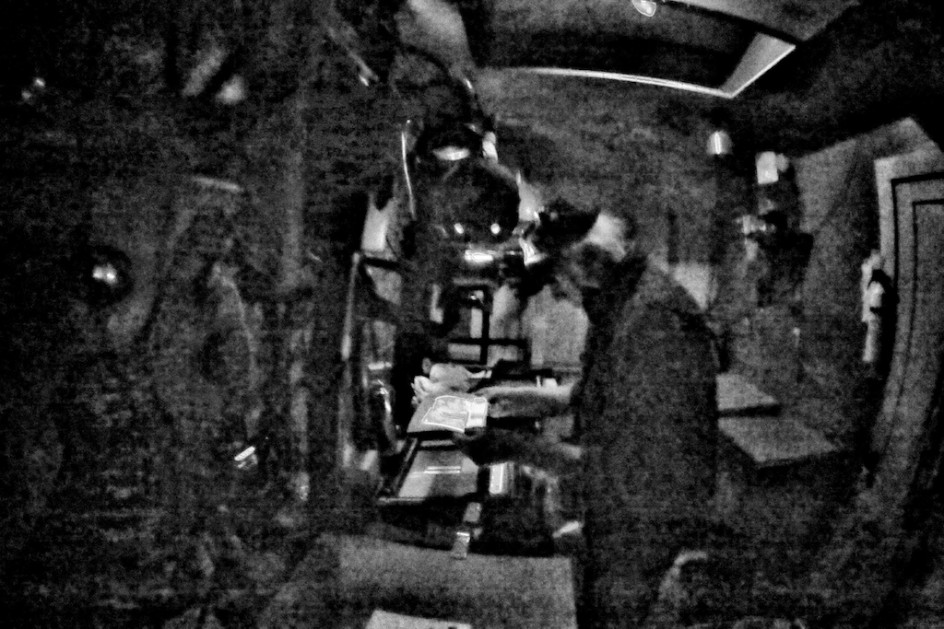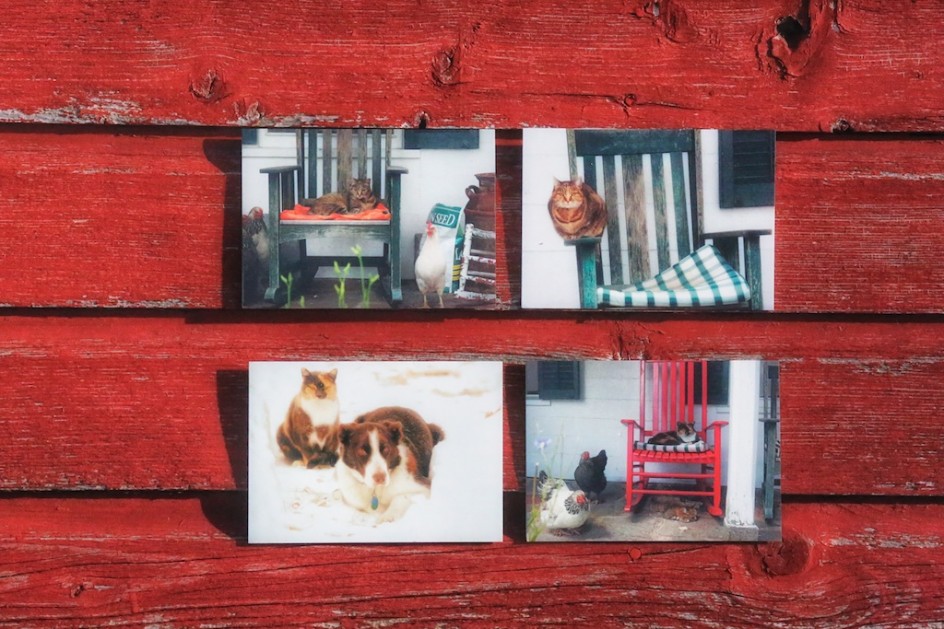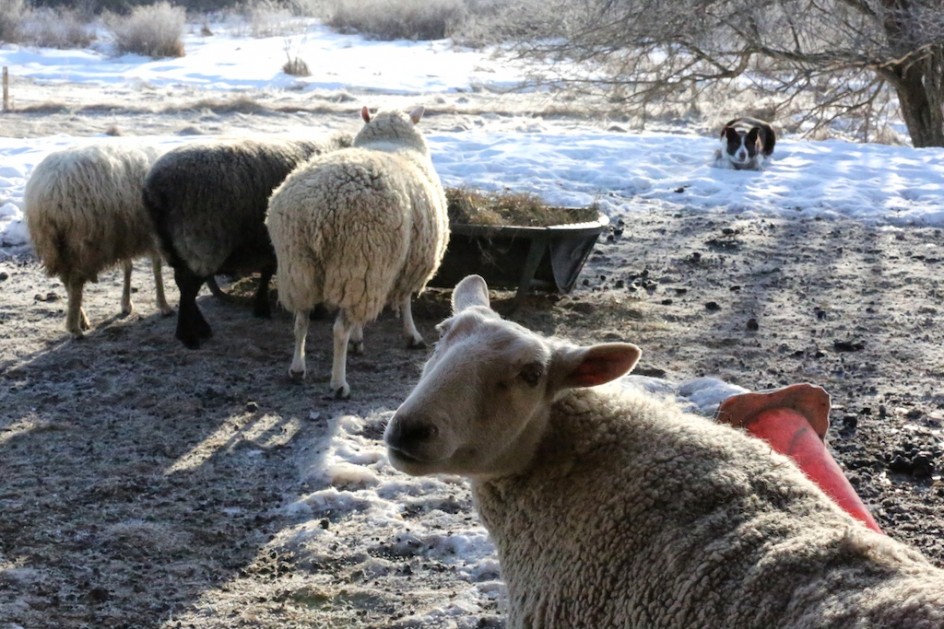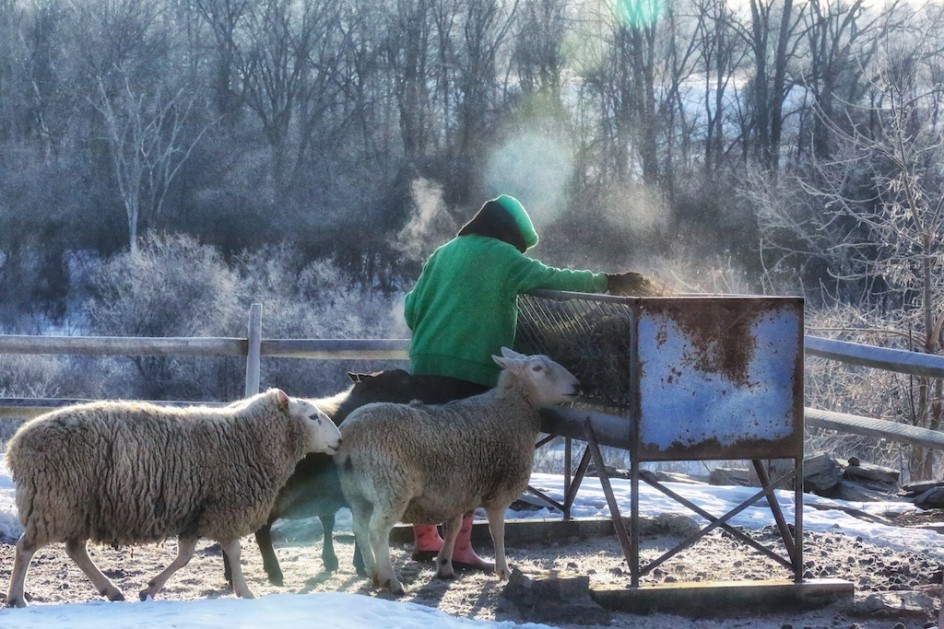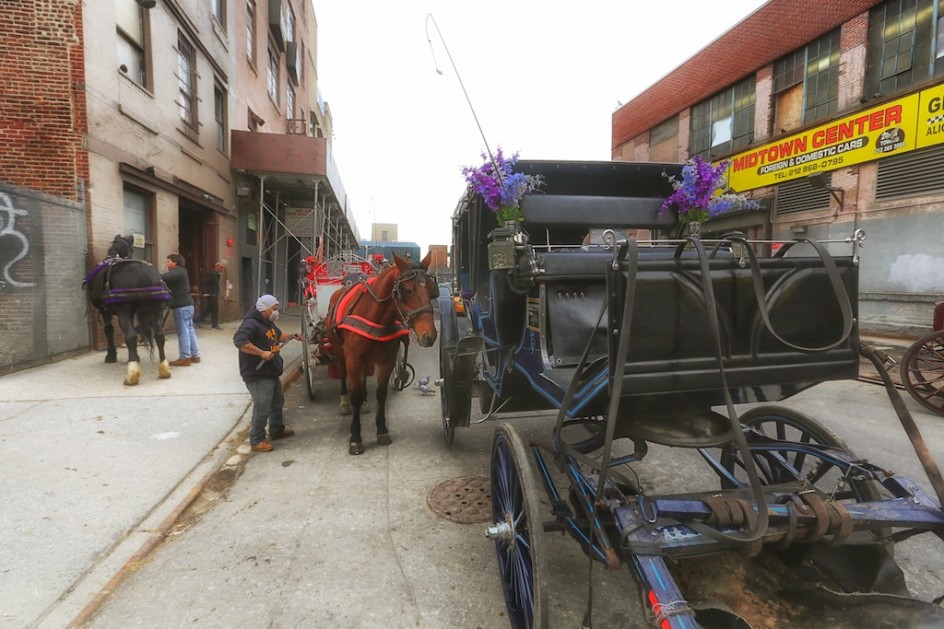
I think of the New York Carriage Horses whenever I recall Henry Beston’s call so many years ago for a wiser and more mystical concept of animals. They are not brethren, he wrote, not underlings, they are other nations, caught with ourselves in the net of life and time, fellow prisoners of the splendour and travail of the earth. To understand animals, we must do the difficult work of trying to understand ourselves.
Has the need for a wiser concept of animals ever been clearer for any animal that these iconic animals, caught in the web of politics and conflict, pawns in the posturing and political games and confusion of people? Sadly, for them, their fate is now in the hands of people who love politics and power rather than people who know and love animals. If you pore through the many statements of the people seeking to push the horses out of New York City, you see quickly that the horses are never real beings, they are not animals as we know them, horses as we experience them. They are fantasies, creations of the imagination, images from the mind, cartoons and one-dimensional fables, symbols of things, rather than being sentient beings themselves.
There is no sense of horses being known beyond their suffering – they are always suffering – there is nothing beyond this understanding of them as piteous and dependent beings, helpless underlings desperately in need of saving.
I wonder sometimes why we are having this conflict about the horses at all, why now, when there are so many important issues to face? One reason is that there really are no important issues to face for the people campaigning to drive the horses away, and that explains much. There is great human suffering all around us, but the first thing the mayor of New York must do is get these horses out of Central Park. Why are these horses, after so many thousands of years living with people and working with them, now seen as suffering so much cruelty and do desperately in need of rescue that they must be sent away, most likely for many of them, to their deaths rather than simply be left alone to their lives and their work? Where does this impulse really come from?
I’ve always been drawn to writing about the people involved with animals as much as the animals. My work has taken me deeply into the psychological realm of attachment theory – the reasons we feel the way we do about the animals in our lives. Attachment theory makes people uncomfortable, because it requires them to look at themselves as well as the animals in their lives in order to understand our feelings about them and reactions to them. I was lucky to spend a year at the University of Kentucky studying attachment theory for a book I wrote called “New Work Of Dogs,” perhaps the most important book I have written about animals, and the least known or bought. This book was perhaps ahead of its time, or maybe nobody wanted to hear it then either.
The strangest thing about the carriage horse fight is how ephemeral it is. There is really no factual urgency at all to this campaign. There is no real evidence that the horses are being mistreated, are depressed or unhappy, or are being abused by working. There are no facts or data to support these accusations, where does this near hysteria come from? The conflict makes no sense unless it is recognized for what it is, something well-known to psychologists and analysts, one of the oldest stirrings in the human mind, the animal fantasy.
Although the carriage horses have become a political issue, unfortunately for them, it really can’t be understood or solved as a political issue. It makes sense only in the context of attachment theory, of the relationship between people and animals. And in the rise of the animal rescue movement, growing rapidly and gaining influence in a society riven with disconnection, isolaton, anxiety and fragmentatiion.
Dorothy Burlingham is a hero to me, she was a wonderful writer and a brilliant British analyst who wrote powerfully and presciently about the birth of animal fantasies in human beings. The animal fantasy, she wrote, is a conscious fantasy, built up in the latency period of the child as the result of fear or disappointment by the parents. The child begins searching for a partner who will give him all the attention, love and companionship he desires and who will provide an escape from loneliness and solitude. The child dreams of having a perfect life, of having a better, kinder, and worthier family than his own, which has so bitterly disappointed, angered and disillusioned him. In disappointment, the child’s love turns into hate, he now despises his family and, in revenge, turns upon it.
This is situation the child cannot long endure: he seeks a way out of his loneliness and anger in dreams and fantasies of rescue. The child takes on an imaginary animal as his intimate and beloved companion, he is never separated from his animal friend and in this way he overcomes his loneliness and despair. The animal offers the child what he is seeking, rescue, comfort, faithful love and unswerving devotion. There is nothing that this animal cannot understand; speech is quite unnecessary, for understanding comes without words. These animal fantasies, writes Burlingham in Twins, are an attempt for the child to substitute for the discarded and loving family an uncritical but understanding, dumb and always loving creature. And just as the animal has rescued the child, says Burlingham, so does the child return the favor and seek to rescue the animal from his suffering and isolation. This idea of rescue, the anger and urgency surrounding it, are incorporated into the child’s psyche, a key part of his human development.
There are several things that stand out if one looks at this intensely emotional debate from a distance. The animal rights sites about the horses are filled with rage and contempt. There is no effort to mediate or negotiate, nothing that can soften or ease the issue. The positions are absolute, almost furiously assertive and compromising. People who oppose them are seen as enemies and demons, tools and abusers, corrupt and without conscience. On these sites, the animals are not real animals, they have no personalities – the people who understand the horses best are never approached or included in these discussions. The horses on these sites are familiar, though, they are Burlingham’s dumb, helpless, loving and beloved creatures in desperate need of consolation and rescue.
In the eyes of the animal rights writers, the animals are starved, worked brutally, confined in cell-like prisons where they can barely stand, suffering in the heat and cold, preyed on by greedy owners, corrupt and thieving riders and a bovine and unsuspecting public, left alone in filth and isolation. The animals are helpless in their lives, unable to withstand work or any kind of confinement, the only acceptable life for them is a perfect one, free of work on farms with their companions, all of them free to walk on soft ground, eat fresh green grass for the rest of their days. They must, at all costs, be saved, speech and negotiation are unnecessary, understanding comes without words, rescue, comfort, faithful love and unswerving devotion are offered without reservation.
When looking at animal fantasies, look for anger, said Burlingham, look for rescue and drama, both are a powerful need for the human to mirror the animal that saved him in his loneliness and came to him in his dreams. Anger and urgent rescue are always the signs that something else is going on, something deep beneath the surface of the arguments and accusations. There can be no discussion, no delay, the saving must occur immediately, without any kind of delay or compromise.
And the question for me, has always been clear: why the drama, why the rage, the bitter accusations, the sense of crisis, the refusal to meet, negotiate, to gather information? Why the rush to force people out of their work and livelihood, to disregard and rrefuse to consider the anguish and protest of so many others? The horses are not dropping in the streets, in their stalls, they are not being moved down by New York traffic, they are not hurting New Yorkers at all, let alone in the way cars, trucks and bicycles are.
I can see it in this discussion, I have seen it so many times and written about it so many times. In our frantic, media-driven political and polarized universe nobody wants to take the time to understand what is really happening, what lies behind the furor, we are all too busy on Facebook, following the warring blogs, making accusations and denying them. There is no understanding in that state, no resolution.
I have always loved Dorothy Burlingham’s work, even though her kind of analysis is vanishing in our hurried society, it helps explain our world to me, especially people and animals, again and again. Mayor deBlasio may yet get these horses out of New York, but he cannot ever seem to really explain why it must be so, any more than the animal rights people can speak with perspective, or compassion for people, or without anger. The truth is none of them really know and can say why they feel so strongly that the horses must leave New York right now, and after hundreds of years.
Dorothy Burlingham would perhaps know right away, but she is gone.
It’s not just about the horses. It’s never just about the animals.
But as always, the animals will pay for our fantasies.

